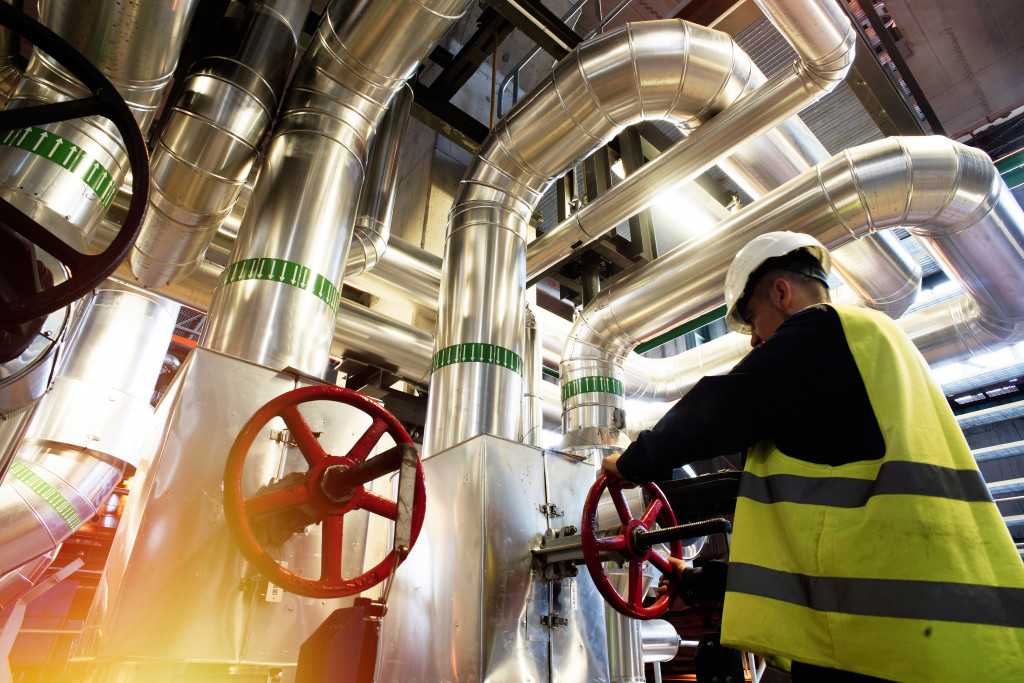- Advanced exploration methods to reduce costs and conserve natural resources.
- Automation in refineries for improved quality and optimized resources.
- Supply chain management to maintain a steady supply of crucial ingredients.
- Environmental sustainability initiatives include tracking carbon emissions, investing in renewable resources, and restructuring operations.
- Enhanced safety measures, including advanced safety technologies, process safety management, and employee training.
The petrochemical industry has come a long way from its humble beginnings to a technology-driven era. Advanced technology has transformed how the companies in this industry carry out their operations, from drilling for oil to transporting it across the globe.
This sector has embraced technological advancements to increase efficiency, improve safety, and tighten environmental regulations. Here’s how technology is used in petrochemical companies’ operations.
Advanced Exploration Methods
Petrochemical companies use sophisticated technologies and sophisticated computer programs to cut exploration costs. Companies use 3D and 4D seismic processing and imaging software to identify where to drill, control drilling operations, and monitor oilfields like never before.
Remote sensing and geographic information systems (GIS) provide quick access to data and assist in mapping and classifying land to identify locations of interest. Reduced exploration costs mean increased profits and conserving natural resources.
Automated Refineries

Petrochemical companies use automation technology in refineries to regulate cracking, separation, and blending processes. The technology allows companies to maintain consistent quality, reduced waste, and optimized resources.
Robotics and sensors are usually employed to monitor facility operations and report real-time errors and causes of issues, reducing downtime and maintenance costs. Digital processes can also perform predictive maintenance, identifying potential problems before they occur.
Supply Chain Management
The petrochemical industry plays a crucial role in people’s daily lives, providing everything from plastic bags to vehicle fuel. However, behind the scenes, a complex supply chain management system is at work to ensure that the products are delivered efficiently and cost-effectively. One of the essential components in the petrochemical industry is the M chemical catalyst, which contributes to producing a wide range of chemicals.
Petrochemical companies must possess a strong relationship with their catalyst manufacturer to maintain a steady supply of this crucial ingredient. Supply chain management is vital in ensuring companies have the necessary catalysts available at the appropriate time. This helps companies maximize their production output and fulfill the increasing demands of the industry.
Environmental Sustainability
In addition to technological advancements resulting in reduced greenhouse gases and minimal water consumption, petrochemical companies use technology to track carbon emissions, monitor air and water quality and ensure adherence to regulation.
This has enabled these companies to reduce the environmental impact of their operations through tracking and reporting emissions, investing in new renewable resources, and restructuring processes to be more sustainable. Consequently, these efforts boost public perception of petrochemical companies as responsible organizations.
Enhanced Safety Measures
The use of technology in the petrochemical industry has led to increased safety in operations. Implementing process automation software in refineries and oil and gas pipelines allows immediate detection of any dangers, such as gas leaks and fires, with emergency protocols undertaken immediately. Here are some enhanced safety measures implemented in the petrochemical industry to protect workers and the environment.
Advanced Safety Technologies
The petrochemical industry has made significant advances in safety technologies in recent years. Advanced safety systems use computer-based models to help predict and prevent accidents before they happen. Intelligent software analyzes real-time data from sensors, monitoring systems, and operational procedures.
Safety and Environmental Measures in Infrastructure Design
In addition to advanced safety technologies, the construction and design of petrochemical facilities incorporate various safety features to ensure the well-being of workers and the environment. Fireproof insulation is a critical component, providing resistance to high temperatures and minimizing the risk of fire-related incidents. Acoustic isolation techniques are employed to reduce noise levels in the vicinity, improving the working environment for employees. Thermal isolation materials are utilized to regulate temperature extremes and enhance energy efficiency.
Regular acoustic measurements are conducted to assess and optimize noise levels within these facilities, maintaining a conducive atmosphere for personnel. These comprehensive safety measures go hand in hand with the petrochemical industry’s commitment to environmental stewardship, emphasizing emission reduction, spill prevention, and responsible waste management. Companies are also increasingly adopting green technologies, such as renewable energy sources and recycling, to reduce their carbon footprint and promote sustainability. Check acusfoc.com to learn more.
Process Safety Management
Process safety management (PSM) is a comprehensive approach to managing the risks associated with hazardous materials and processes. It covers all aspects of operation, including design, construction, maintenance, and training. The PSM approach involves identifying potential hazards, developing procedures to minimize the risk of exposure, and continuously monitoring and improving safety performance.
Employee Training and Education

Employee training and education are essential components of a strong safety culture in the petrochemical industry. Workers must receive comprehensive training to understand the risks associated with their job functions and recognize potential hazards. Training should include classroom instruction and hands-on experience in simulated or real-life situations.
Environmental Stewardship
Enhanced safety measures in the petrochemical industry also include a commitment to environmental stewardship. Companies are implementing measures to reduce emissions, prevent spills and leaks, and properly dispose of hazardous waste. To minimize the industry’s carbon footprint, best environmental practices include using green technologies, such as renewable energy sources and recycling.
Final Thoughts
Petrochemical companies use technology to cut costs, reduce environmental damage, and enhance safety. As technology continues to evolve, it is expected to become even more integral to the industry. While some may view the petrochemical sector as slow to adopt technology, it’s evident that technology is increasingly used throughout the entire value chain.
While petrochemical companies face concerns around environmental and social impacts, the measured approach in implementing technology to reduce these risks is an encouraging sign of progress and responsibility.
